A man with autism is suing the supermarket giant for refusing entry to his assistance cat.
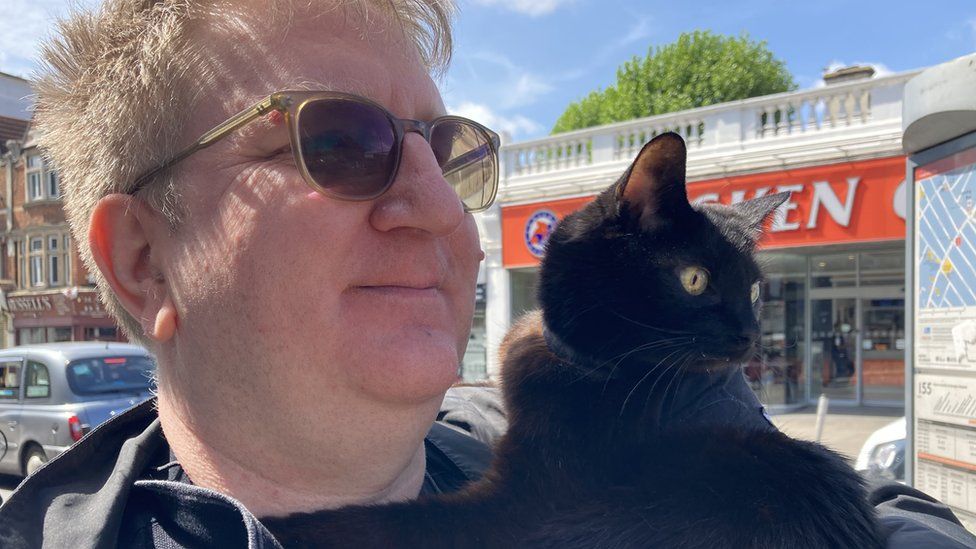
A man with autism is taking supermarket giant Sainsbury’s to court for refusing entry to his assistance cat.
Designer and writer Ian Fenn from London says the ban on Chloe, who helps him in daily life, is limiting his independence.
He says she helps him stay calm, but the supermarket argues that cats, unlike assistance dogs, present risks to food hygiene.
The case might set a legal precedent if it has to be ruled on by top judges.
Sainsbury’s says it is working with an environmental health team to find out how Ian and his cat can visit safely.
This video can not be played
To play this video you need to enable JavaScript in your browser.
Ian was recently diagnosed with autism after many years of struggling with anxiety in busy or noisy environments.
He has trained Chloe to help him manage his way through daily life after discovering on a train journey that her presence improved what would otherwise have been a stressful situation.
When we meet Ian and Chloe in a south London pub, she’s sitting on a small, dedicated mat beside him on the sofa, gazing intently at the drinkers.
She wears a “service cat” jacket and occasionally nibbles treats. Over the course of an hour, she occasionally looks around, but does not leave the mat once.
Outside the pub, she sits on Ian’s shoulder or walks around on a lead.
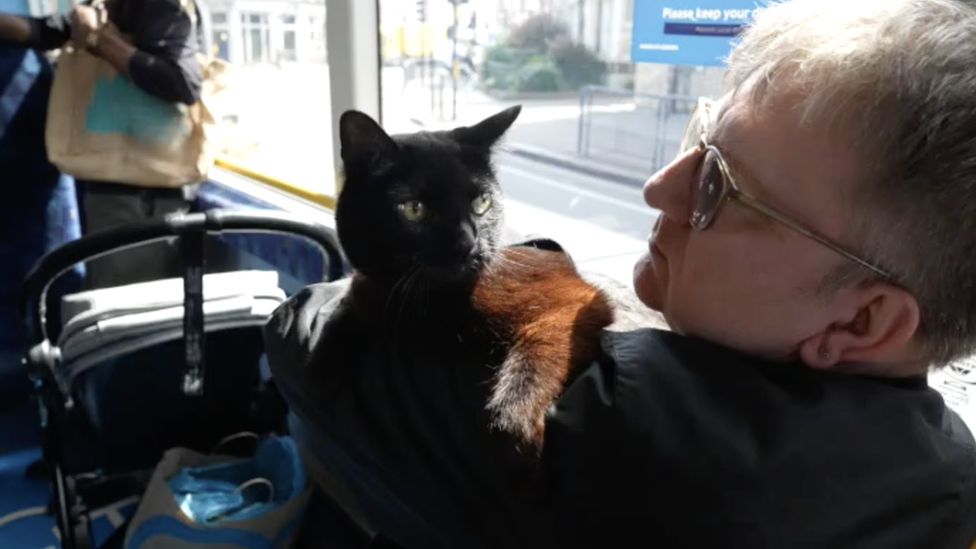
“I realised that my life was a lot better with her being around – there’s a lot of autistic people suffering from depression. I’m not alone any more,” he says.
“I get sensory overload in busy environments and tend to shut down. But with Chloe I can focus on her.
“She brings structure to my life, she wakes me up in the morning, she tells me when to go to bed. It’s difficult to know how she feels about the relationship, but I feel that we’re a team now.”
This year, she’s been to more than 30 different restaurants and pubs, numerous public attractions, a hospital and on scores of trains and buses. Ian contacts business owners or operators in advance – but Chloe is not universally accepted.
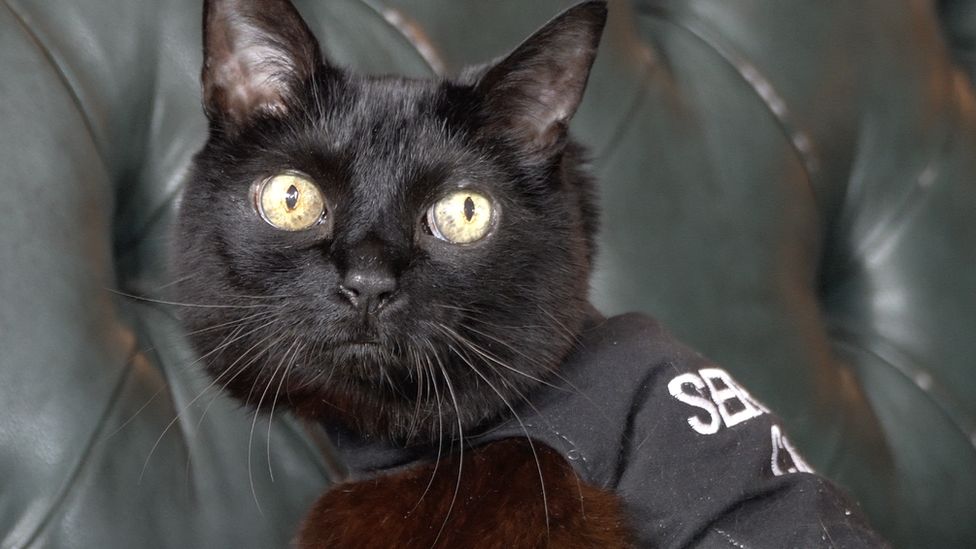
In March, the pair visited a Sainsbury’s in Clapham, south London after thinking he had been given permission. But security and store staff told him he needed to leave his cat outside.
“I ended up becoming quite upset,” he says. “I got to the point where I couldn’t actually remember why I was in the store and what I needed to buy.
“It affected my confidence significantly. I stayed in the house for two weeks before I got the confidence back to go out.”
The store was the first rejection from a major supermarket. A nearby Tesco lets Ian visit, as the BBC witnessed. After Ian complained, Sainsbury’s told him it would only allow assistance dogs into its stores.
It said that while Chloe may be well-behaved, if it altered its general policy it could present a risk of other more unruly cats causing havoc – and it would have no way of assessing an animal’s behaviour or training.
And this is where the matter has become a potentially complicated courtroom fight: The law on assistance animals is not clear cut.

Ian’s view is that Chloe is a properly-trained assistance animal who is an essential “auxiliary aid” – a legal term for something that is providing support for someone with a disability.
Under the Equality Act 2010, business owners have a duty to make a reasonable adjustment so as to ensure that someone who has a disability is not placed at a substantial disadvantage. The UK’s definition of a disability includes autism, because the condition can be shown to affect day-to-day life.
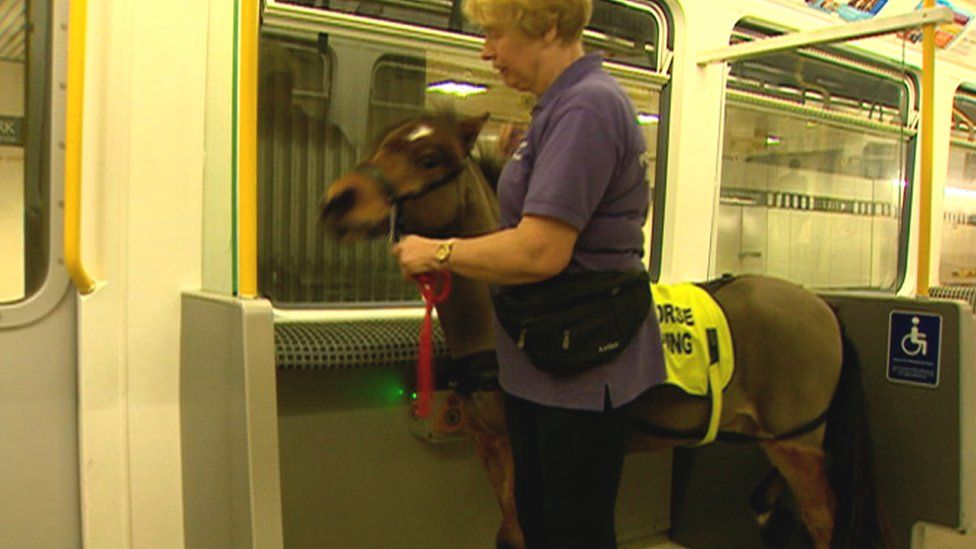
In a statement, Sainsbury’s said: “We want to be an inclusive retailer where people love to work and shop and understand that some of our colleagues and customers may need support in our stores.
“At the same time, safety is our highest priority and our colleagues are trained to balance maintaining our high food hygiene standards with supporting all our customers who shop with us.
“We are in contact with the local environmental health team to see if there are ways we can help Mr Fenn to visit our store without compromising this.”
Ian does not agree that the supermarket’s current stance is reasonable and that is why he plans to argue his case before a judge.
“I appreciate a bloke wandering around with a cat is a bit unusual,” he says.
“The reality is that I don’t want that attention. What I want to do is just run my life normally. So when somebody says, ‘No, you can’t, because you have this creature that is helping you,’ it’s really upsetting.”
Unique case in the making
Chris Fry, one of the UK’s leading disability rights lawyers, is representing Ian.
“The key and fundamental principles are that service providers have a legal obligation to provide reasonable adjustments to accommodate disabled customers,” he says.
“Guide dogs are seen as being established as a reasonable or an auxiliary aid to help disabled customers.
“But there’s never been anything specific in relation to anything other than a support dog in this country.”
There have been assistance horses in service in the UK – but it has been a much hotter topic in the United States.
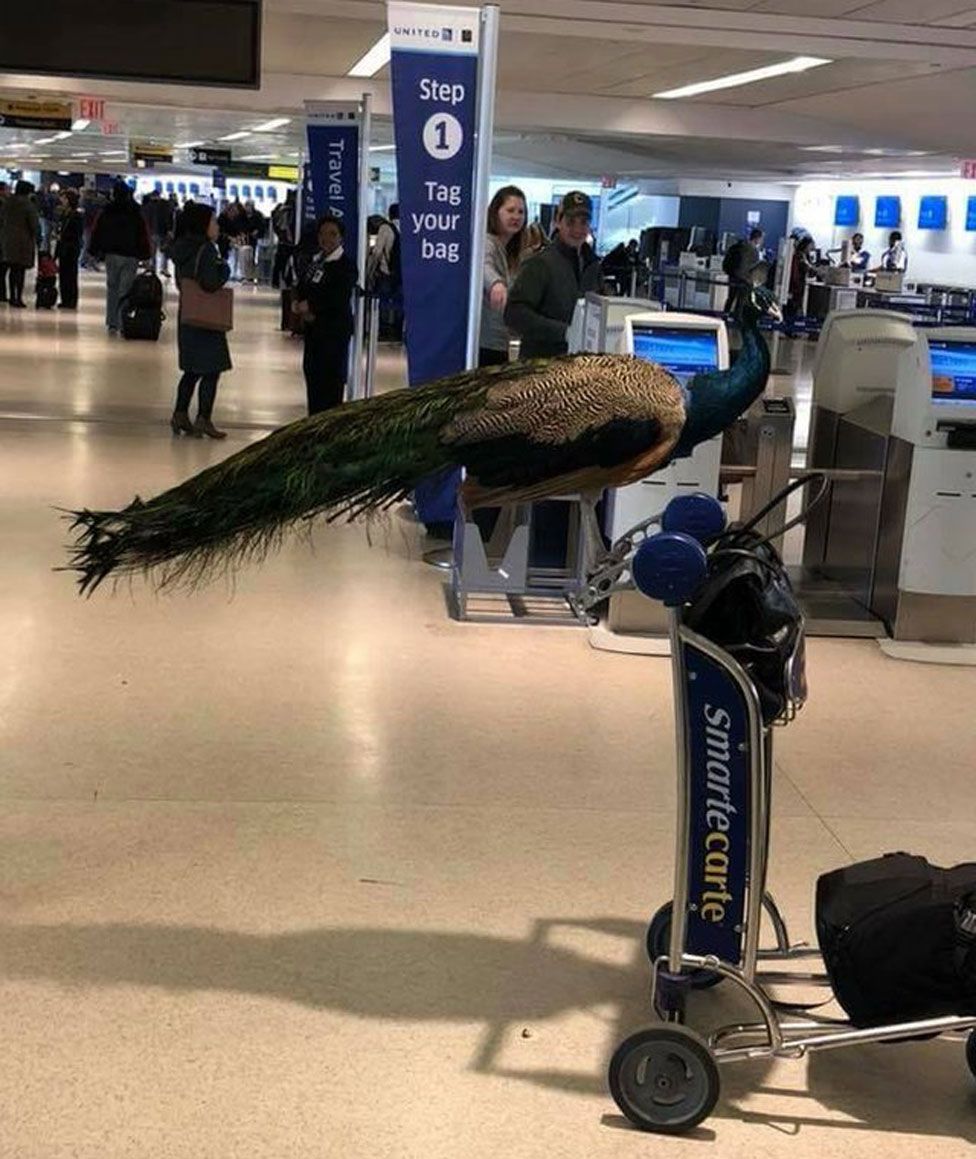
Image source, Picture via TheJetSet.tv
Four years ago, American airlines recorded 751,000 requests to take emotional support animals on flights – including miniature horses and a turkey. The matter turned into a national media debate when a passenger was banned from taking their support peacock on a plane.
Ultimately, the US’s national air transport rules were tightened up to ban emotional support animals other than dogs.
While US law is different, Chris says similar legal questions need to be explored in the UK as society’s understanding of disability equality and rights develops.
He says Ian can show the training he has provided Chloe – and a business should take that into account. But would a win mean anyone could take their trained gerbil or rabbit to the weekly shop?
“Cases like this provide clarity – for businesses and for individuals alike,” says Chris.
“I think the court will be concerned to make sure that if this case goes as far as final judgment, that it will set out some guidelines to help address issues.”